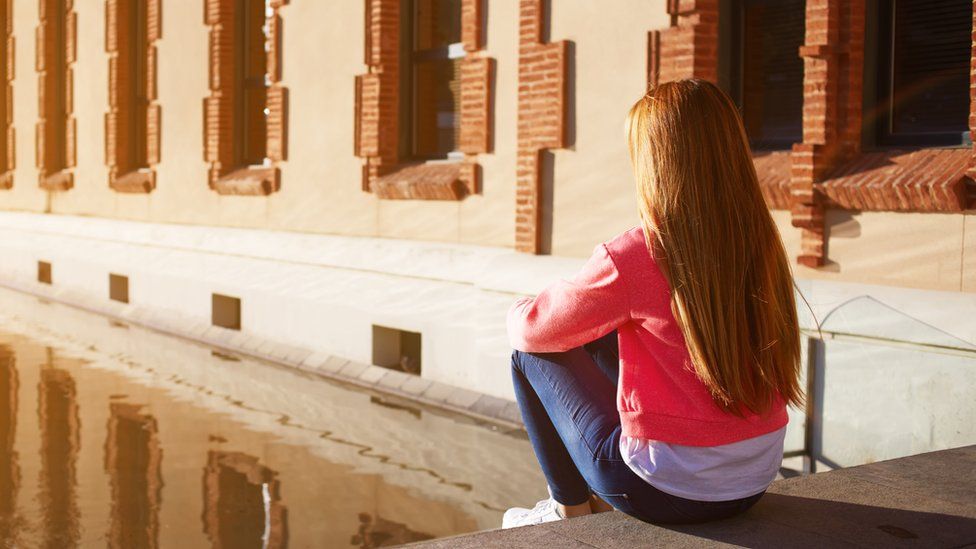Children turned away by mental health services
- Published

More than a fifth of children referred to mental health services in England have been refused treatment, according to research by the NSPCC.
The charity said that some of those turned away included children whose problems stemmed from abuse.
Nearly 40,000 young people did not meet the criteria for receiving help.
The charity is concerned that the criteria for allowing children access to treatment is too strict in some areas.
The government said it was boosting funding to meet an increasing demand for these services.
Rejected
The NSPCC said a time bomb of serious mental health conditions was being created and reported cases of abuse were soaring in the UK.
Figures from 35 mental health trusts across England show that a total of 186,453 cases were referred by GPs and other professionals for help, but 39,652 children did not receive it.
The most common reason was that the child did not meet the clinical threshold for receiving help from Child and Adolescent Mental Health Services (Camhs).
Children and young people and their families can be referred to Camhs if children are finding it hard to cope with family life, school or the wider world.
Children's mental health services can help with a variety of problems including violent behaviour, depression, eating difficulties, anxiety, obsessions, self-harming and the effects of abuse or traumatic events.
They can also treat serious mental health problems such as bipolar disorder and schizophrenia.
In six trusts where children who had problems associated with abuse or neglect were referred to Camhs, 305 of the 1,843 cases were rejected - one in six.
'National priority'
Peter Wanless, chief executive of the NSPCC, said children could be damaged by not receiving the right kind of help and support.
"Not addressing their needs early on is just creating a time bomb of mental health problems. Sadly, the availability of specialist services that meet the needs of abused children, when they need it, do not appear to have kept pace with this growth in understanding of the crime.
"There is a vacuum that needs to be filled and it needs to be a national and local priority."
The NSPCC said its ChildLine service received nearly 100 calls a week last year from children who were abused and whose mental health and wellbeing were suffering as a consequence.
The charity has previously said there are "huge gaps" between the estimated demand for services by victims of sexual abuse and the availability of services.
A report last year from the NSPCC found that the number of sexual offences against children recorded by police in England and Wales was up by more than one third in 2013-14.
A spokesman for NHS England said: "We do need, as a country, to better understand the underlying causes of why it is that children and adolescents' mental health problems seem to be on the rise, including eating disorders.
"In the meantime, the NHS is expanding its services to respond, supported in part by an extra £1.25bn pledged for mental health in the March budget."
- Published2 October 2015